Transhumanism: The Next Step In Evolution
Transhumanism is a practice often romanticized in narratives set decades or even centuries in the future; a functional tool to some while merely a fashion trend to others, human augmentation piques the interest of many that peruse science fiction.
The concept of Transhumanism, defined as 'the philosophical movement to enhance the human condition through sophisticated technologies' is seen as a pipe dream or even the fantasies of a people dissatisfied with their own vessels.
Such a statement is partially true, in that while it still lacks much ground in reality, the application of such a theory is sure to help countless humans with their somatic setbacks.
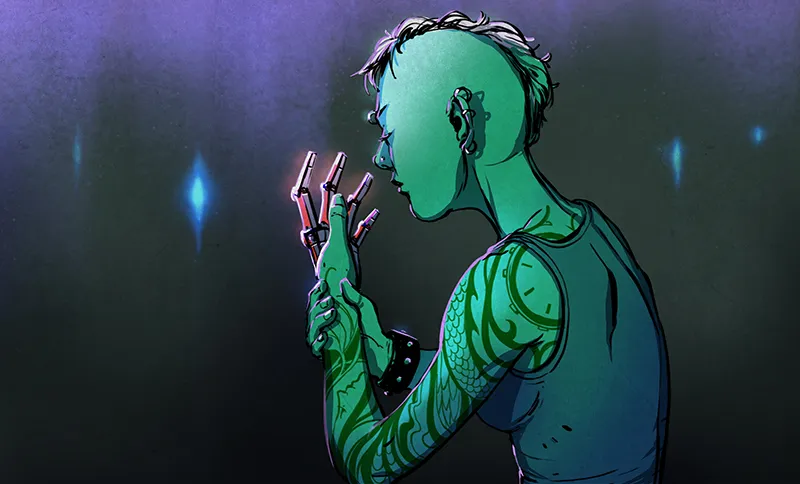
Where's the appeal in human augmentation?
The particular appeal differs from person to person, ranging from functional appeal to the experimental aesthetic, the value of such advancement is presently varied by one's own status.
Some may find utility in cerebral uplinks for digital connectivity, implanted microchips for ease-of-access interactions, and servomotors that facilitate a person's everyday motions and activities.
To expand upon the concept, the monetary transactions we make today have certainly changed, from the 'plastic magic' of a credit card to the intuitive tap of our smartphones. Nowadays, paying at the register is as simple as opening an application and hovering our phone above the receiver.
The only means of payment safer is a system that can't leave your wallet or even your pocket. A chip implanted in your hand, for instance.
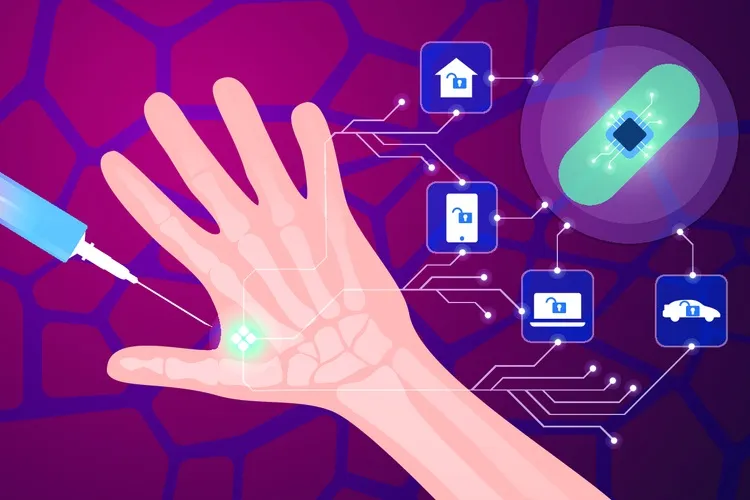
Some people recoil at the thought of having a microchip. They may consider it intrusive, an invasion of privacy by parties unknown that will do as they please with sensitive information such as your whereabouts, your personal identity, and could even be considered manipulation of one's very person.
Such could already be said about any partaking on the internet, and in possession of a wallet or purse. Such information is equally vulnerable to those with the means to track an IP address, trace a number, to steal a wallet or phone. If anything, a transition to chip form would reduce the number of leaks of such information, seeing as it has to literally leave your hand.
Car theft, house invasion, and account compromise could all be circumvented by the presence of a unique chip that provides access only to the person wielding such an implant. Security systems will no longer rely on contingencies like physical keys, passcodes, or passwords, and instead, are all handled automatically by the proximity of your microchip.
When I consider the concept of having such accessibility handled instantaneously, with completely secure interactions for any and all cybernetically linked devices, the potential seems limitless. A latent fear some may have of going missing, being kidnapped, or worse, can be put to rest knowing that you can broadcast your location to the appropriate authorities at a moment's notice, given you have a microchip.
Medical applications of augmentation
Many physically disabled individuals are getting the medical and therapeutic support they deserve as biomedical technology progresses further. Open Bionics™ is one of the pioneer companies to aim for commercially available prosthetics for those missing their limbs.
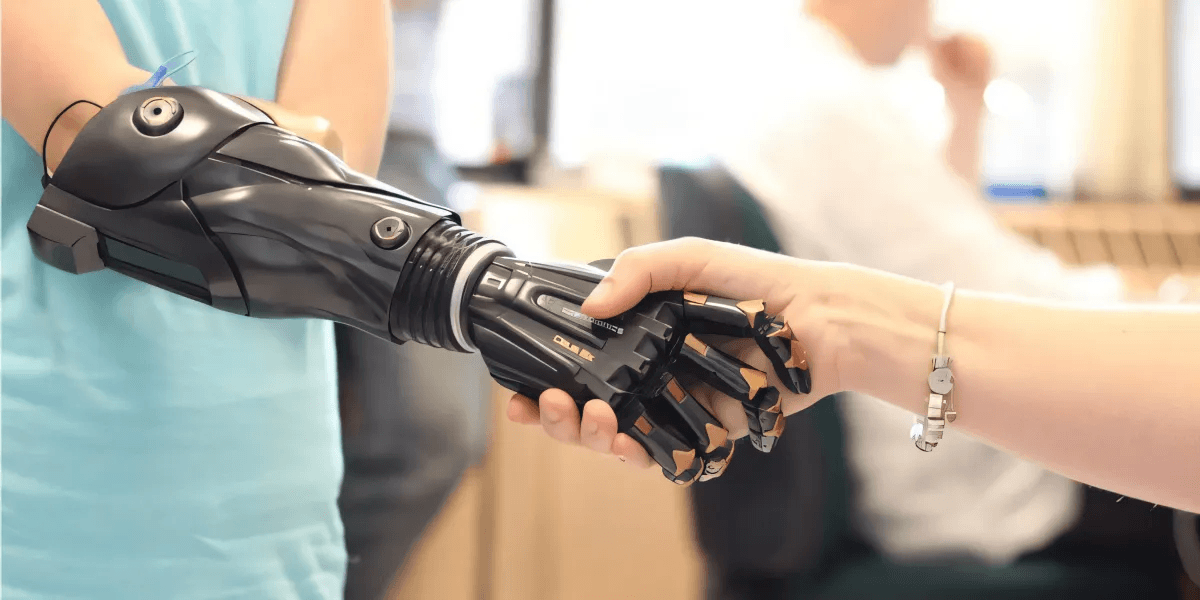
These prostheses dubbed the 'Hero Arm', not only serve to provide a dignified, futuristic look for their operator, but also possess motor skills capable of gestures and grip that their predecessors lack.
However, this technology has not been perfected. It can be noted from demonstrations of the Hero Arm that the unit is not directly attached to tissue of the arm but instead rests, arguably more comfortably, over and around the extremity, gauging grip from the bodies' own muscles flexing.
As of now, such an aspect is welcome, as a prosthetic is not considered one with your body, and should be easily removable and adjustable by the wearer. However, as they are not surgically attached, they lack the full range of control and bodily strength of their owner, and as such have a limit to their application; a warehouse package handler, while able to carry small or medium sized-packages, would find themselves struggling to carry anything weighing more than 60 pounds.
This is currently negligible, as the current purpose of prosthetics is to restore use to the limb itself, not to enhance. These serve a purely medical purpose, not cosmetic nor amplifying, regardless of their style or shape.
What practicality does transhumanism offer?
As aforementioned, the functionality of limbs and organs can be restored in part or fully, depending on how advanced the technology progresses. Those that may have sustained a crippling injury or debilitation, now unable to sustain a living and relying upon disability checks, would have the chance to take life by the reigns again.
Some jobs may even seek out those with enhanced or modified limbs, given the nature of the tasks, or specialization involved. For instance, the video below demonstrates an example of a hand prosthesis designed and developed by a man with several fingers on his left hand.
The video displays that let alone being capable of holding or manipulating objects, a special-made prosthesis like this would permit convenient and controlled power-tool usage at your fingertips in the most literal sense.
If such a prospect doesn't fascinate you already, consider the unending room for originality and self-expression that would come from a society embracing transhumanism. Not only would it be within your power to improve yourself, mechanically or cosmetically, but you would have fundamental control of how you shape your life. This very notion of somatic liberation goes a long way to helping everybody to pursue a future of their choosing.
Why is augmentation not ready yet?
While steps are being taken to aid those not fully abled, applications with the intent to enhance are still considered impractical, and in some cases, unethical. To build upon ourselves without dire need could be considered heretical, to attempt to advance ourselves millennia before natural selection mandates it.
The very concept of grafting metal or inorganic compounds to the flesh has already been expanded upon, whether referring to steel rods meant to reinforce shattered bones, or else botulinum injections with the intent to tighten muscles and reduce wrinkles. Both surgical applications serve their purpose, with varying degrees of success. Not to mention, mechanical implants such as pacemakers, cochlear implants, and even bionic eyes exist and serve to restore, but not enhance.
To reiterate, these surgical procedures do not give one hearing beyond the range of the average human, nor strength on par with a forklift. As of now, supply is met with demand, and there is only a demand for bodily restoration, not an enhancement.
However, this will change as the price, both physical and monetary, continues to decrease. With the introduction of 3D printing, we've already seen the rise of the aforementioned Hero Arm, a commercially available and affordable prosthetic. Implementation of cosmetic surgery, tattoos, and ornaments will continue to increase in popularity as the practice of application is cheaper, safer, and further comprehended.
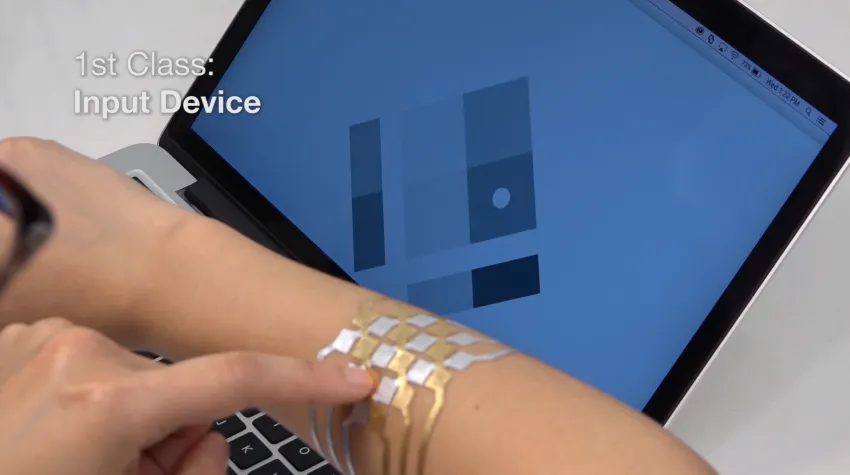
Pictured above is a project developed at MIT, a series of temporary tattoos fabricated to provide a safe means of interface input, cosmetic displays, and wireless communication. While not implants, these are certainly a precursor to dermal augmentations.
Price, safety, and accessibility are all necessary, with form currently taking precedent over function; without people willing to take risks, more extreme alterations will not come about.
Why Must We Evolve, and How?
Considering the significant amount of harm we've already done to our beautiful Earth, it's unusual to think we've evolved for so long solely to be parasites to our planet. To put it more optimistically, humans are the only species on earth to have progressed so quickly in such a short time, that we've already achieved space travel. It's only a matter of time before we make a new home among the stars, and our current bodies may not be able to withstand the trials that may lie ahead.
There comes a point where we have to step in ourselves and speed up the progress of society and human nature itself. Transhumanism, at its core, embodies this idea of evolving beyond our natural forms, in the hopes we can become something even greater than what we've achieved so far. To unlock the mysteries of neuroscience, negate the effects of diseases and injuries, and come to a step closer to self-actualization is a gigantic goal for humanity.
The efforts we as humans are taking to make strides toward transcending humanity are currently limited, whether due to budgetary concerns, the dangers of unsanctioned surgery, or simply the technology that has been made available to the public.
However, it becomes more apparent with every passing year that we, as humans, are destined to take somatic matters into our own hands. To control our own fates and exceed the limits of our own flesh, and as the only organic lifeforms of Earth to come so far technologically, it's the natural next step to advancing our civilization.
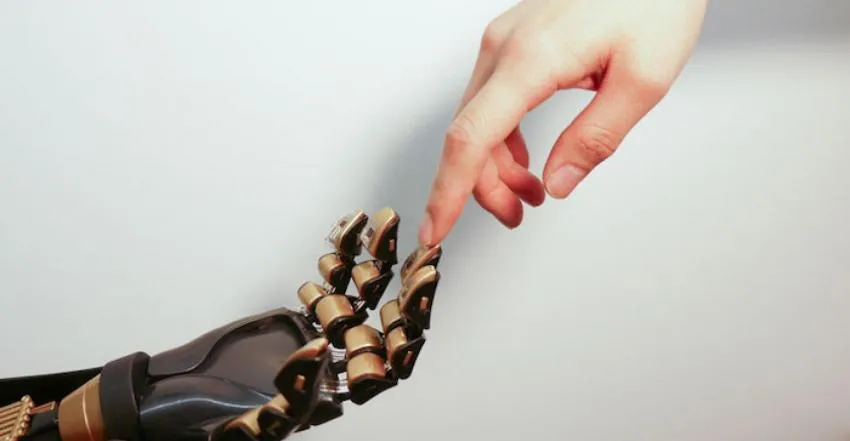
Opinions and Perspectives
I think this is inevitable. Better to embrace and guide it than resist it.
The balance between enhancement and restoration is an interesting ethical question.
We need to ensure these technologies enhance rather than replace human connection.
I like the gradual approach with temporary technologies like the DuoSkin project.
The security benefits sound promising but we need better cybersecurity first.
The article makes a good point about how we're already using similar technology.
I'm concerned about compatibility issues between different manufacturers and systems.
The medical advantages seem worth the risks, especially for those with chronic conditions.
We need more public discussion about the ethical implications of these technologies.
The artistic possibilities are endless. Imagine being able to change your appearance at will.
My main worry is dependency on technology. What happens if something fails?
I appreciate how the article acknowledges both the benefits and concerns.
The potential for abuse by governments and corporations needs to be addressed.
Would insurance cover these modifications? That's a huge factor in accessibility.
Think about how this could help emergency responders and disaster relief workers.
We should start preparing legislation now before the technology outpaces our ability to regulate it.
The power tool prosthesis shows how specialized modifications could revolutionize various industries.
Not sure about others, but I'd love to have night vision or infrared capabilities.
I'm most excited about the potential to help people with disabilities live more independently.
The comparison to current payment methods is spot on. Technology always seems scary at first.
What about religious perspectives on this? Many faiths might have strong opinions.
We need to ensure equal access to these technologies to prevent creating a new form of social inequality.
I'm curious about how these modifications would affect our legal rights and identity.
The social implications could be huge. Would people with augmentations form their own communities?
The article makes some good points about security but seems to gloss over potential vulnerabilities.
I'd love to have enhanced vision or hearing. Think of all the things we could experience.
The idea of somatic liberation is powerful. We should have control over our own bodies.
What about maintenance? Who would be qualified to repair or upgrade these augmentations?
I find it interesting how the article draws parallels between cosmetic surgery and transhumanism.
The environmental impact of producing these technologies needs to be considered too.
We're already augmenting ourselves with glasses, hearing aids, and joint replacements. This is just the next step.
As someone working in cybersecurity, I'm both excited and terrified by the implications.
I can see this helping with space exploration. We'd need to modify ourselves to survive on Mars anyway.
The security benefits sound great but what happens if the system goes down? We'd be completely locked out.
Not sure how I feel about the self-expression aspect. Could lead to some wild modifications.
The point about natural selection is fascinating. Are we taking evolution into our own hands?
It's naive to think we can stop this technology from developing. Better to focus on making it safe and ethical.
Interesting how the article mentions tattoos as a precursor to augmentation. Body modification has always been part of human culture.
The cost of the Hero Arm is still prohibitive for many people. We need to make this technology more accessible.
I'm excited about the medical possibilities but nervous about cosmetic applications getting out of hand.
Remember when smartphones seemed like science fiction? In 20 years we might feel the same way about these augmentations.
The idea of broadcasting your location for safety is interesting but also scary. What about privacy?
I wish the article had discussed more about the current research being done in universities and labs.
That special prosthesis with built-in power tools is genius! Really shows how augmentation could revolutionize specific industries.
The military applications worry me. We could end up with superhuman soldiers.
I work in healthcare and I can see huge potential for improving patient care with this technology.
Anyone else concerned about planned obsolescence? What happens when your augmentations need an upgrade?
The temporary tattoo technology seems like a great stepping stone to more permanent solutions.
I'm surprised the article didn't mention the gaming industry. Imagine the immersive experiences possible with neural interfaces.
Think about the possibilities for people with disabilities. This could be life-changing for so many.
The comparison between smartphone payments and microchip implants really puts things in perspective for me.
I'm particularly interested in cognitive enhancements. Being able to process information faster or store more memories would be incredible.
The potential for workplace discrimination worries me. Will people feel pressured to get augmentations to stay competitive?
You really trust corporations with that kind of access to your body? I'll stick to carrying my wallet.
Just imagine never having to carry a wallet or keys again. Sign me up for that microchip!
The article barely touches on the ethical implications. We need stricter regulations before this technology becomes widespread.
My grandmother has a pacemaker and that's technically a cybernetic implant. We're already living in the future in many ways.
Does anyone else worry about the psychological impact of becoming partially synthetic? I wonder how it might affect our sense of identity.
The security aspects mentioned in the article are compelling. No more lost keys or stolen wallets sounds pretty good to me.
I love how the Hero Arm combines functionality with style. It's not trying to hide that it's prosthetic but embraces a futuristic aesthetic.
The price point is what concerns me most. Will these technologies only be available to the wealthy, creating an even bigger social divide?
Actually, I think we can do both. Advancing human capabilities could help us better protect and restore our environment.
We should focus on fixing our planet instead of modifying ourselves to survive elsewhere.
The article mentions space travel but doesn't go deep enough into how transhumanism could help us survive on other planets.
What interests me most is the potential for medical applications. Imagine being able to monitor your health 24/7 with internal sensors.
I disagree with the idea that we need to evolve beyond our natural forms. There's something sacred about remaining purely human.
Those DuoSkin tattoos from MIT look amazing! I could definitely see myself trying those before committing to anything permanent.
The fear of technology is understandable but we're already cyborgs in a way with our smartphones. A chip isn't that different from carrying a phone everywhere.
Honestly, the Hero Arm looks incredible. My cousin lost his arm in an accident and seeing these advancements gives me hope for better solutions in the future.
I find it fascinating how the article discusses microchips as a security measure. Having all my data literally in my hand sounds convenient but I'm still a bit wary about potential hacking risks.
